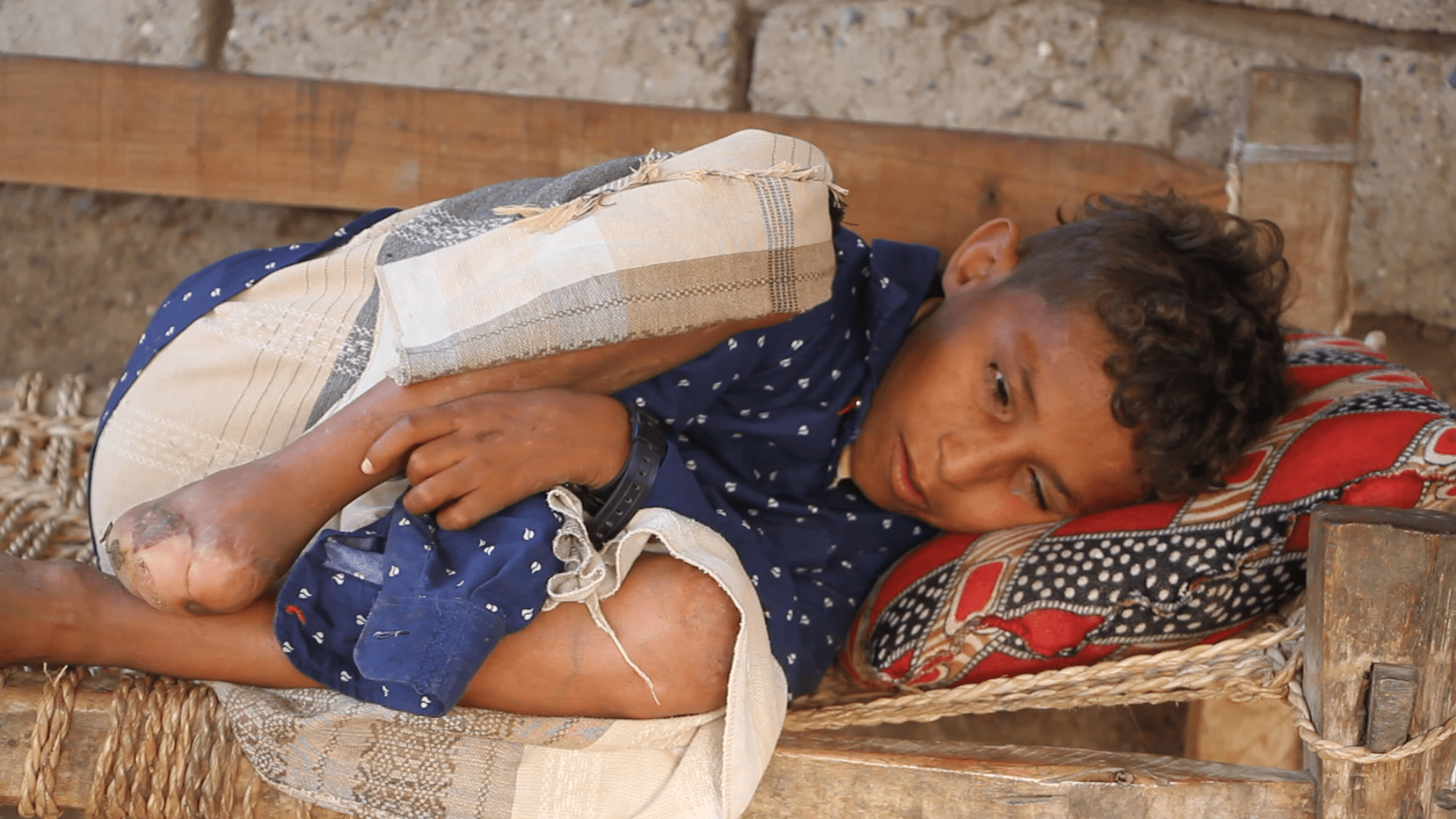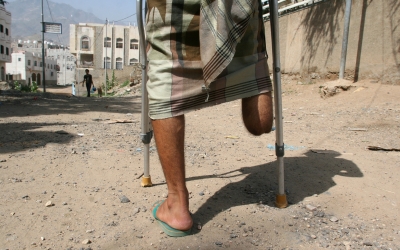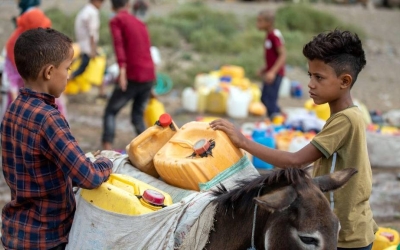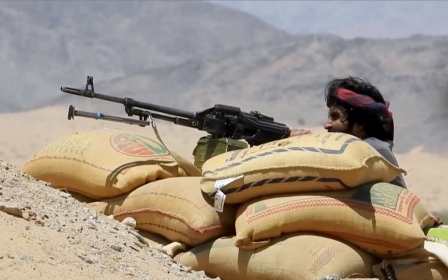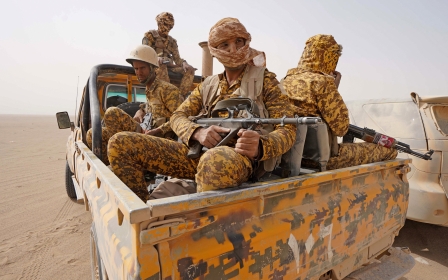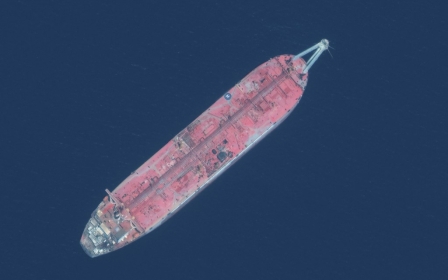Yemen war: Deadly landmines blight the lives of children on western coast
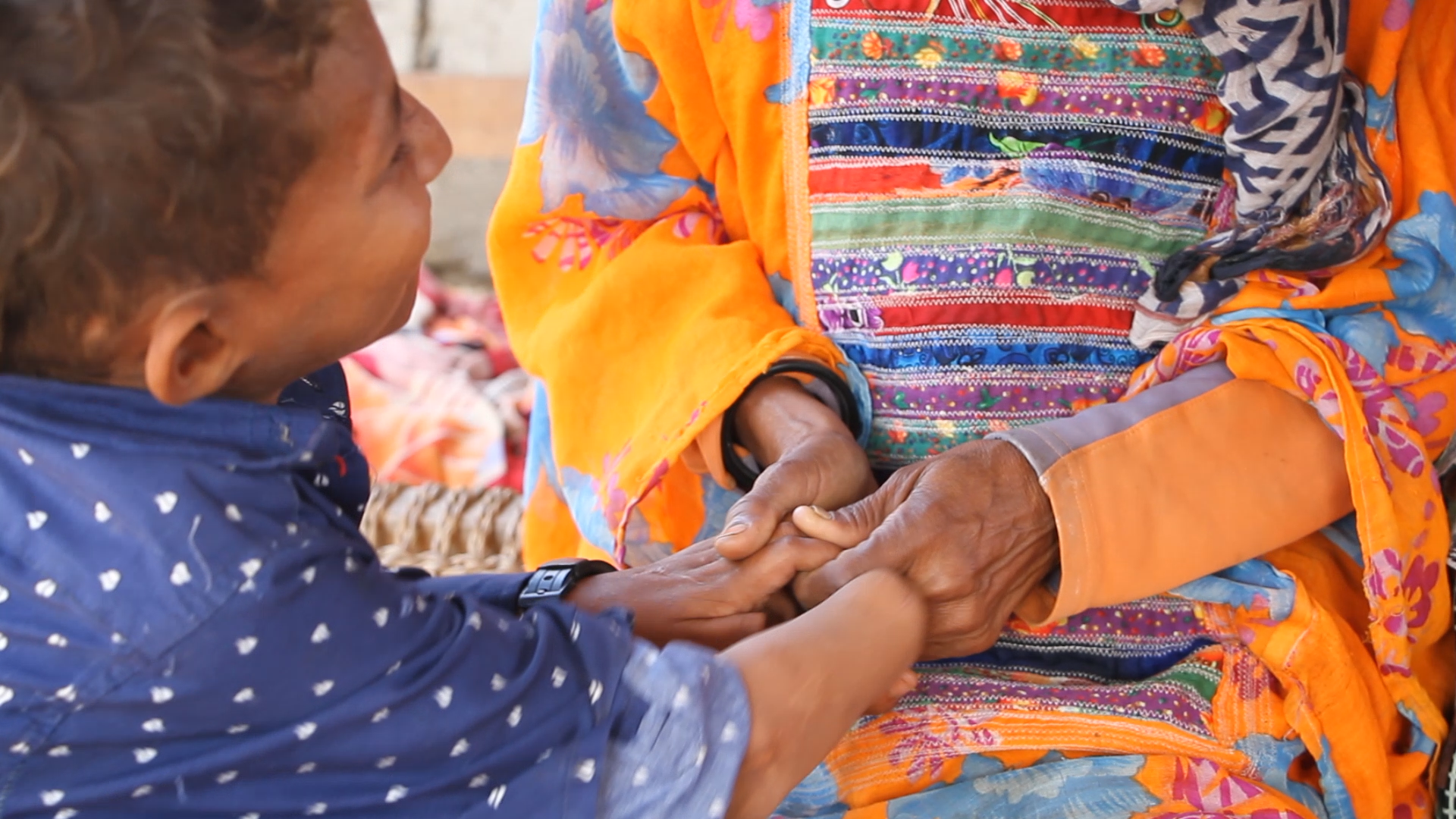
Abdullah Ahmed Abdullah used to have a carefree life, sailing on the sea with his father and brothers looking for fish instead of going to school.
The 11-year-old is from a coastal village in Hodeidah's Duraihimi district, where most of the people, including children, work in fishing to provide for their families and where education is not a necessity.
In 2017, the battles between the rival sides of Yemen's civil war arrived at the village, prompting Abdullah's family to flee to a safer place on the western coast.
'When we started to play with it, it exploded, and my brother died immediately. I was seriously wounded'
- Abdullah Ahmed Abdullah, 11
Within one year, the village was recaptured by forces loyal to the internationally recognised government, and Abdullah's family and others were then able to return to their homes.
"I went back to the sea with my father, brother and other neighbours. We were happy to return to our homes and resume our work," Abdullah told Middle East Eye.
New MEE newsletter: Jerusalem Dispatch
Sign up to get the latest insights and analysis on Israel-Palestine, alongside Turkey Unpacked and other MEE newsletters
However, their happiness was short-lived. The coast was now full of deadly landmines.
"One morning, when I came back from the sea with my brother Nader, we took a block of iron that we found on the ground, thinking it was something we can play with," he said.
Abdullah knew that some neighbours were victims of landmines, but he was not aware of what the landmines or other explosive devices looked like. Like other children in his area, he thought he could play with remnants of random objects left on the ground.
"The following day, we played with the iron object. We didn't know that it was an explosive device," he said.
"When we started to play with it, it exploded, and my brother died immediately. I was seriously wounded."
Abdullah and Nader were taken to hospital, but Nader was already dead, while Abdullah was bleeding heavily and unconscious.
Disability and trauma
“When I regained consciousness, I was told that I had been injured by the explosion of the landmine that I was playing with, but I wasn't aware of what happened exactly. I was just looking at my body and crying, and kept doing that for days," Abdullah said.
Abdullah lost his right foot and a hand, while his other hand has been paralysed because of shrapnel. He lost one of his eyes, and may lose the other one if he doesn't get proper healthcare, according to his family.
Abdullah's father, Ahmed, who works as a fisherman, told MEE that many residents of his area have stepped on landmines. They were either killed or injured, and the survivors had to sell everything to afford treatment.
"I sold everything to get proper healthcare for Abdullah, but to no avail. He may lose vision at any time, as he needs specialised healthcare."
Abdullah is dependent on his mother to help him with his daily life. The fact that his movement and visibility are impaired has devastated him.
"Abdullah suffers from psychological trauma. Sometimes, especially when he argues with his siblings, he tries to jump in the water well," Ahmed said.
"Nader died, may he rest in peace, but we are even more saddened about Abdullah, as he is in front of us and we witness his suffering every day."
Since 2018, landmines, improvised explosive devices and unexploded ordnance have killed or injured at least 1,424 civilians in Yemen, many of them children, according to the UN Office for the Coordination of Humanitarian Affairs, which coordinates global emergency responses to protect people in humanitarian crises.
The manager of the Yemen Executive Mine Action Centre, Brigadier General Ameen al-Oqaili, said in April 2021 that landmines had killed more than 8,000 people, including children and women, since the beginning of the war in September 2014.
Oqaili accused Houthi rebels of planting the landmines, stating that the landmines had also killed 61 bomb-disposal technicians affiliated with the national pro-government forces.
"The pro-government bomb-disposal technicians have dismantled and destroyed more than 689,000 mines and explosive devices during the past six years in the war-ravaged country," Oqaili said.
Families devastated
Ahmed al-Nihari, 17, from Hodeidah's al-Tuhayta district, also worked in fishing with his father and other people of his coastal village.
One day in August 2018, while he was coming back with his father from the sea, he stepped on a landmine. His father then stepped on another landmine on his way to help his son.
"Each of us was thrown to a different side by the explosion. I was looking at my father, but neither one could help the other," Nihari told MEE.
"In a few minutes, some fishermen managed to take us out of that landmine field, and they sent us to a hospital. But my father's wounds were critical, and he died.”
The young Nihari lost his leg and his father in one day. He cannot work anymore, while the nine family members no longer have a breadwinner.
'I hope that a generous person or an organisation can help my son with an artificial leg so he can sail again'
- Salima, mother of Ahmed al-Nihari
"I hardly move with the help of crutches and can't work. I used to work and help my father, but the landmines changed our life for the worse," he said.
Salima, Nihari's mother, said that, as the eldest among his siblings, he is supposed to be the breadwinner, especially now that his father is dead, but unfortunately he can't go to sea anymore.
"I hope that a generous person or an organisation can help my son with an artificial leg so he can sail again," Salima said.
'Long-term weapons'
Abduljabar al-Zuraiqi has been working on demining for years at the Yemen Executive Mine Action Centre.
Zuraiqi told MEE that he uses traditional techniques, as Yemen doesn't have modern minesweepers, so it takes a long time for them to sweep a small area.
"Demining isn't easy. It takes time, and it is dangerous. We can't guess the landmine network's location. That's why some colleagues have been killed during demining," he said.
"Usually, we search the main roads and put warning signboards on the suspected areas so people can avoid them."
He said that Yemen needs support in clearing landmines and explosive devices to reduce the number of future casualties.
"Landmines were planted heavily in the coastal areas. Unfortunately, we can't search for landmines everywhere."
Zuraiqi said that some landmines appear after rainfall, and others were planted in unexpected areas, constituting the biggest threat to civilians.
"Landmines are long-term weapons. Even if the war ends, they will continue to kill civilians as no one knows the network of those mines," he said.
"Yemen is in dire need of support with demining, so people can resume their normal life at least when the war ends."
This article is available in French on Middle East Eye French edition.
Middle East Eye delivers independent and unrivalled coverage and analysis of the Middle East, North Africa and beyond. To learn more about republishing this content and the associated fees, please fill out this form. More about MEE can be found here.


